Reverse Your Risk of Diabetes with These Simple Dietary Changes
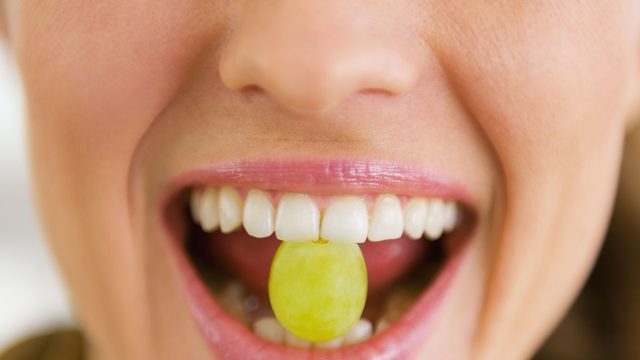
Type 2 diabetes is one of the fastest-growing health concerns worldwide, but the good news is that it's largely preventable. By making a few simple dietary changes, you can reverse your risk of developing this serious condition. Research shows that certain foods and nutrients can help regulate blood sugar, reduce insulin resistance, and prevent the buildup of belly fat, a major contributor to diabetes. In Zero Belly Diet, these proven strategies target the root causes of diabetes and help you take control of your health without drastic measures. Here are 11 simple but powerful dietary changes that can lower your risk of diabetes and keep your blood sugar in check.
Eat More Fiber-Rich Foods
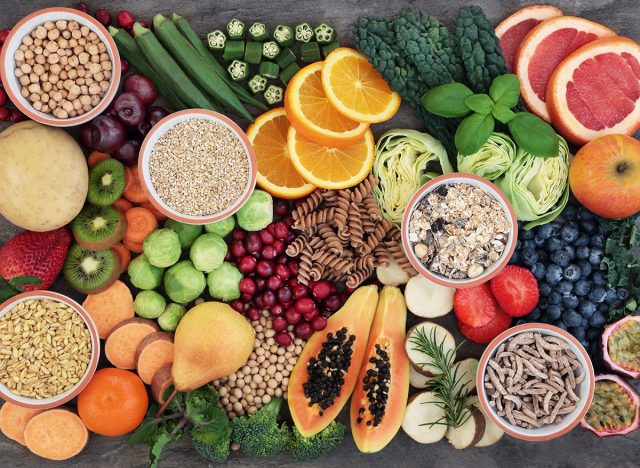
Fiber slows down the digestion of carbohydrates, preventing blood sugar spikes. Foods like beans, oats, and whole grains help keep your blood sugar stable, reducing your risk of insulin resistance.
Choose Whole Fruits Over Juice

Whole fruits, especially berries, apples, and grapes, are packed with fiber and antioxidants that support blood sugar control. Studies show that swapping fruit juice for whole fruits can lower diabetes risk by 23%.
RELATED: 10 Foods and Drinks I Eat Every Day to Lose Cellulite After Losing 45 Pounds
Add Omega-3s to Your Diet
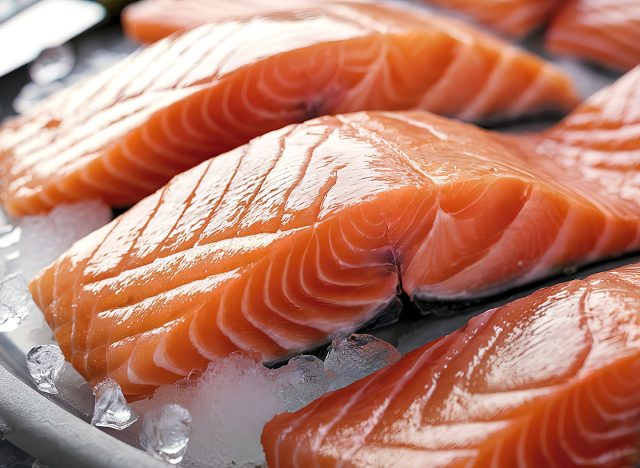
Omega-3 fatty acids, found in fatty fish like salmon and flaxseeds, help reduce inflammation and improve insulin sensitivity. Consuming more omega-3s can lower your diabetes risk by up to 33%.
Limit Refined Carbs
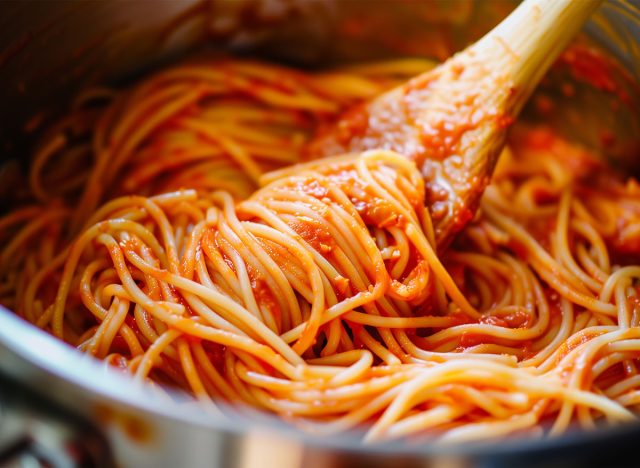
Refined carbs, such as white bread and pasta, can spike blood sugar and lead to insulin resistance. Opt for whole grains like quinoa and brown rice to help regulate blood sugar and protect against diabetes.
Incorporate Healthy Fats

Healthy fats from sources like avocados, nuts, and olive oil help balance blood sugar levels and prevent fat accumulation around the organs, which is linked to diabetes. These fats also keep you full, preventing overeating.
Eat More Plant-Based Proteins
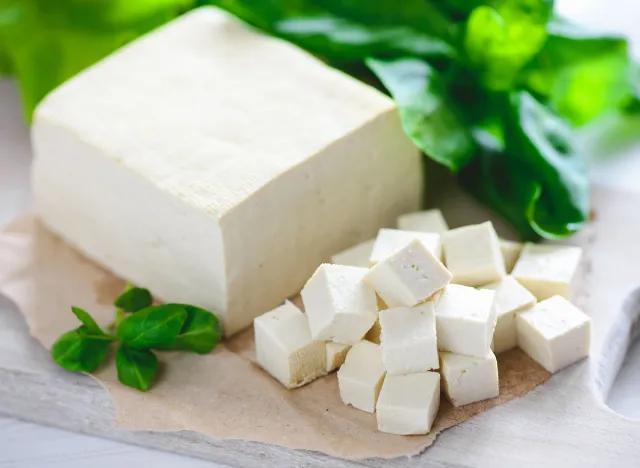
Beans, lentils, and tofu are excellent sources of plant-based protein that help regulate blood sugar and reduce fat storage. Including more plant proteins in your diet can improve your overall health and lower diabetes risk.
RELATED: I Dropped 100 Pounds as a Dietitian and These Are 5 Surprising Things I Learned
Add Cinnamon to Your Meals
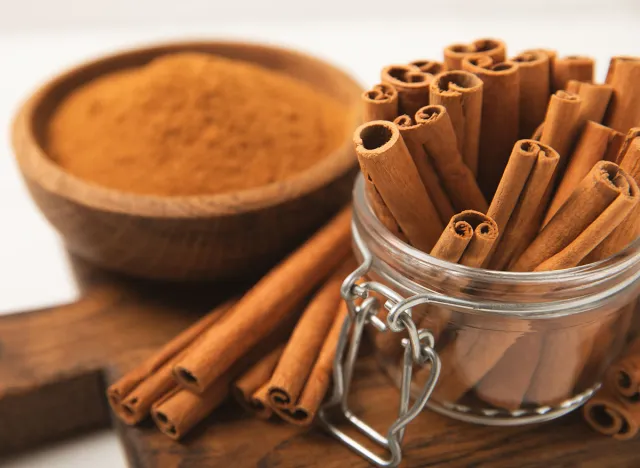
Cinnamon has been shown to stabilize blood sugar and improve insulin sensitivity. Adding cinnamon to your diet can reduce blood sugar levels and help prevent diabetes-related complications.
Drink Green Tea

Green tea contains powerful antioxidants called catechins, which help improve insulin sensitivity and promote fat burning. Drinking green tea regularly has been linked to a lower risk of developing diabetes.
Cut Back on Red Meat
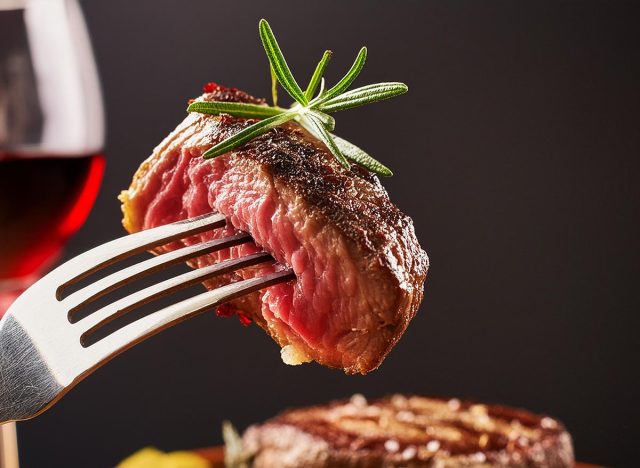
Studies show that reducing red meat intake can lower your diabetes risk by nearly 50%. Swap red meat for lean proteins like chicken, fish, or plant-based alternatives to protect your health.
Snack on Nuts
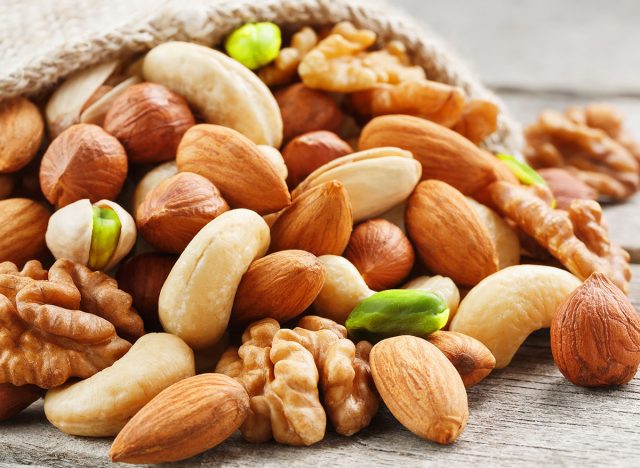
Nuts are high in fiber, healthy fats, and protein, which help regulate blood sugar and keep you full between meals. Snacking on nuts regularly can reduce the risk of diabetes and improve overall metabolic health.
RELATED: The Top Foods Proven to Flatten Your Belly
Stay Hydrated
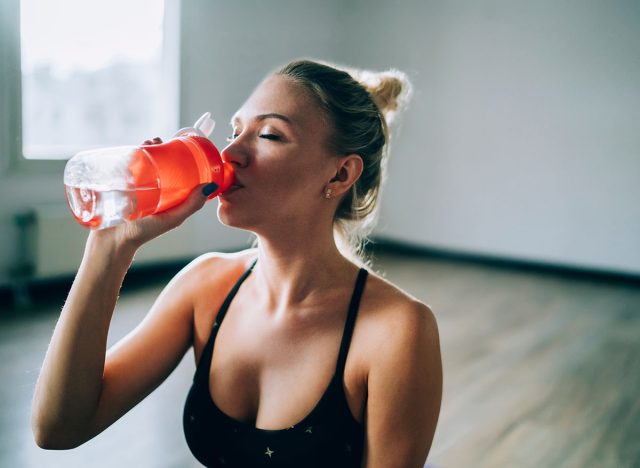
Drinking plenty of water throughout the day helps flush out excess sugars from your bloodstream and prevents dehydration, which can lead to high blood sugar. Aim to stay well-hydrated to support healthy blood sugar levels.
By incorporating these simple dietary changes into your routine, you can significantly reduce your risk of diabetes and improve your long-term health. Each change is easy to adopt and can make a big difference in managing blood sugar and preventing diabetes. And if you enjoyed this article, take advantage of these 15 Quick Ways to Lose Body Fat Percentage in a Week.




